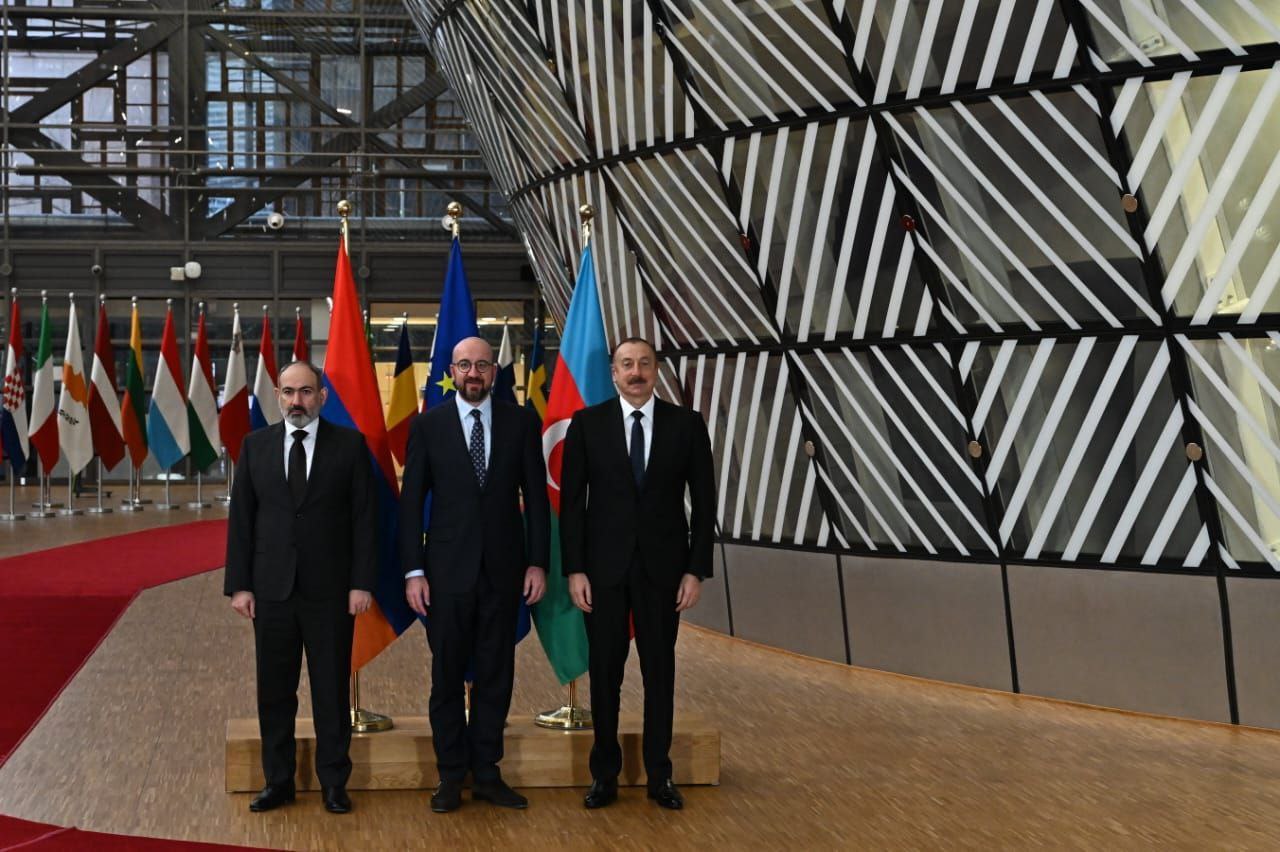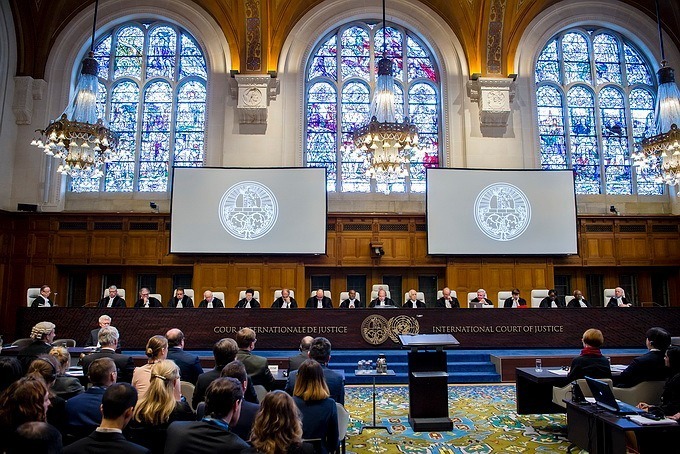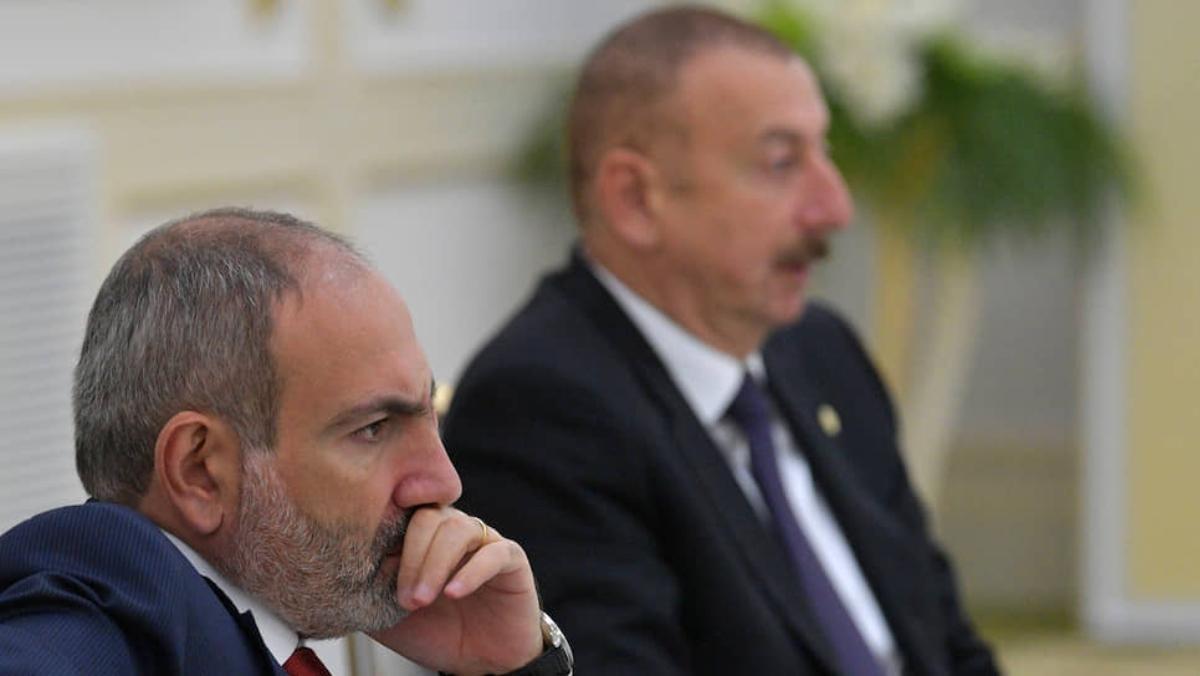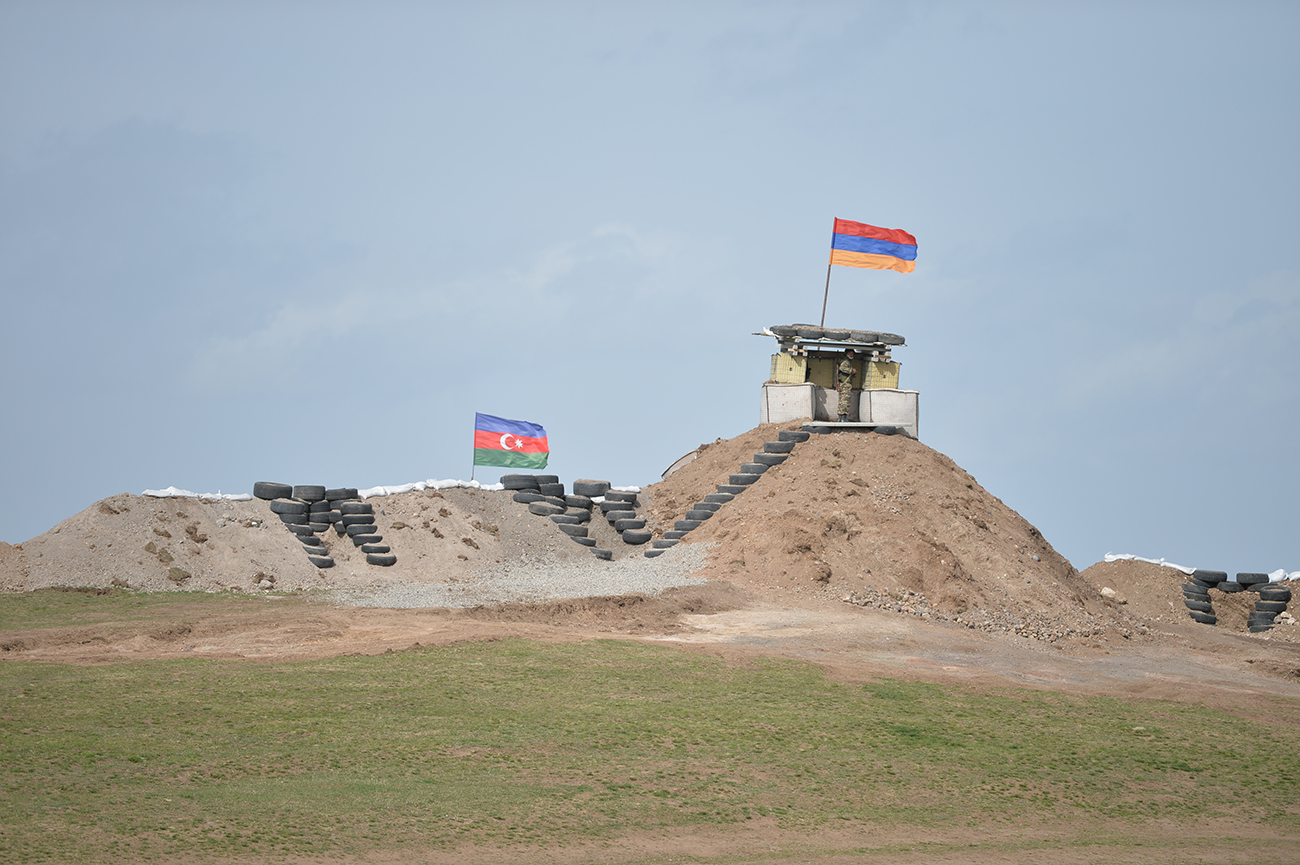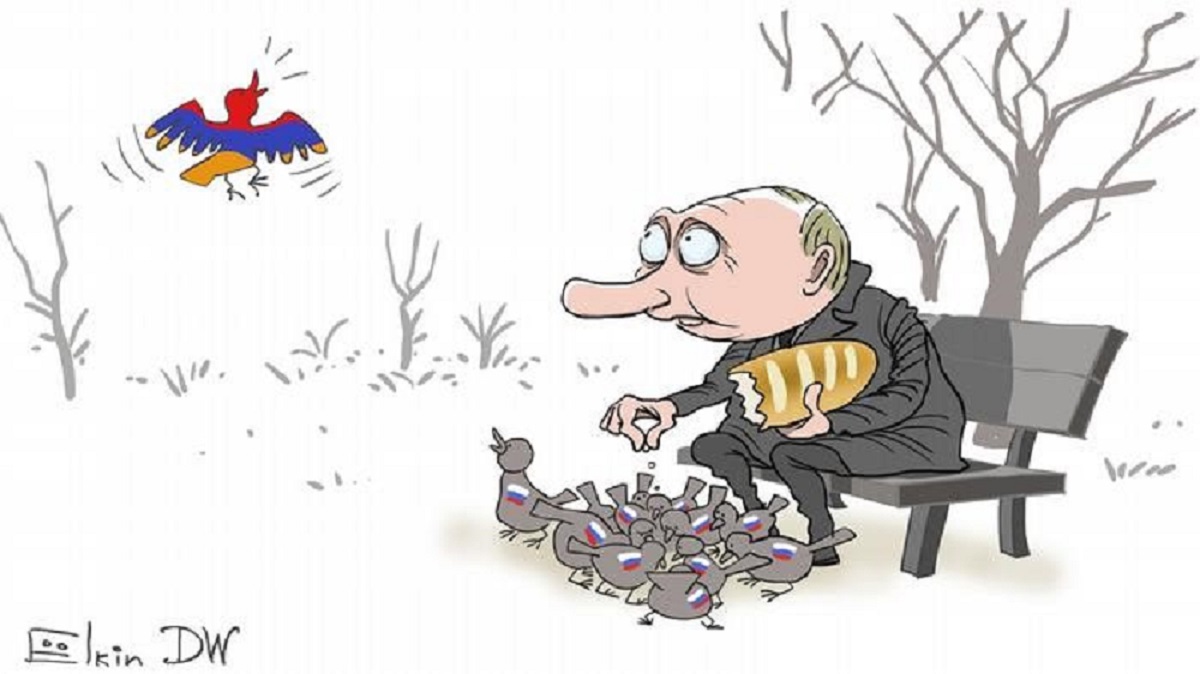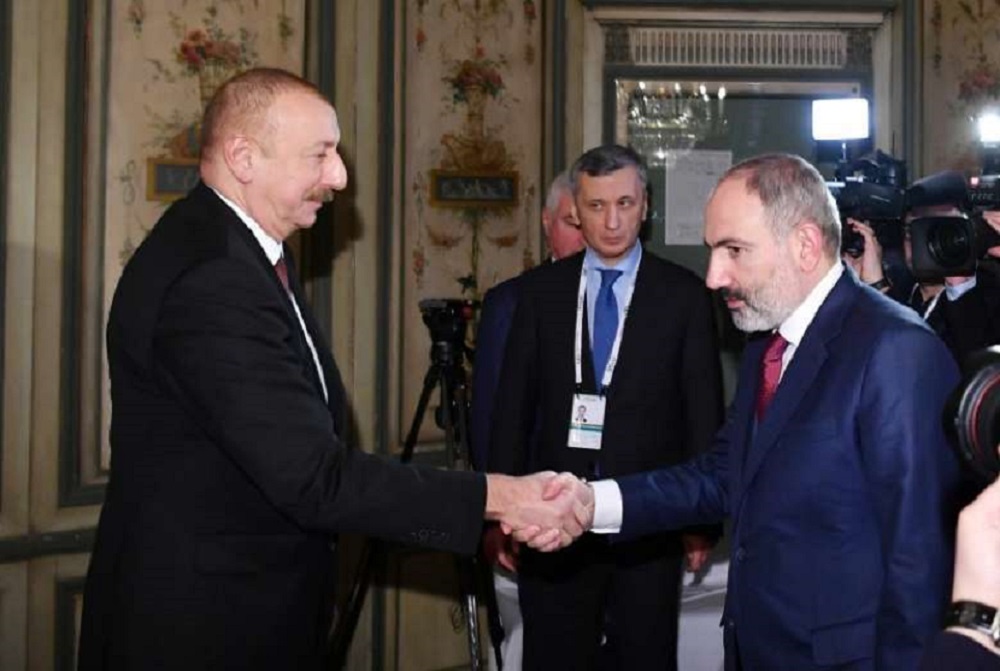Armenian PM: NK status is not a goal, but means to ensure security of Armenians
Pashinyan’s address in parliament
The Prime Minister of Armenia delivered a report to the National Assembly on the implementation of the government’s program for 2021. But in the end, Nikol Pashinyan’s speech became more of an analysis of the country’s domestic and foreign policy and the advisability of further steps. He dwelled in detail on the negotiations with Azerbaijan, spoke about the signing of a peace treaty and the demarcation of the Armenian-Azerbaijani border, the situation around Nagorno-Karabakh.
The prime minister, in particular, said that Azerbaijan is trying to maintain military tension on the border in order to make territorial demands on Armenia. And this, according to him, is understood by international partners:
“Azerbaijan will try to bring the peace talks to a standstill as soon as possible, making this a pretext for new aggression and aggressive actions against Armenia and Nagorno-Karabakh.”
- Flag of discord: Yerevan at odds with Armenian opposition over Karabakh flag
- Armenian and Russian FMs meet in Moscow immediately after Pashinyan-Aliyev talks in Brussels
- Armenian PM: “Azerbaijan is trying to legitimize another war”
“We do not rule out further territorial claims from Azerbaijan”
The Armenian side intends to speed up the process of signing a peace agreement with Azerbaijan as much as possible. Therefore, according to Pashinyan, immediately after the meeting in Brussels, the Minister of Foreign Affairs was instructed to begin preparatory work. But the timing and format are still to be agreed upon.
At the same time, the Armenian prime minister does not rule out that Azerbaijan will try to lead the peace talks to a dead end and start hostilities:
“We have the same calculation, by the way, in connection with the work on delimitation. We do not rule out that Azerbaijan will use this process to make territorial claims against Armenia, de jure declaring that it has no territorial claims”.
According to Pashinyan, in the process of clarifying the border, Armenia will use “only facts and arguments that have de jure significance.”
He spoke of the importance of the work of the bilateral delimitation commission, which would also have the mandate to ensure security along the border:
“This means that the commission will have certain powers to monitor the border situation, as well as the opportunity to come up with a concrete proposal to increase the level of security and stability. If necessary, international experts can also be involved in this process.”
The composition of the commission and the format of work are already being discussed, everything will be determined no later than April 30.
According to Nikol Pashinyan, there is no alternative to the “peace agenda” announced by his government, despite all the difficulties and obstacles.
The international community expects Armenia to recognize the territorial integrity of Azerbaijan and “lower the bar on the status of Nagorno-Karabakh from the Armenian side”:
“Otherwise,” says the international community, “please don’t count on us – not because we don’t want to help you, but because we can’t help you.”
“The issue of NK concerns rights and freedoms”
According to the Prime Minister, Armenia has never had territorial claims against Azerbaijan, and the issue of Nagorno-Karabakh is not a matter of territory, but of rights. Guarantees of the security of the Armenians of Nagorno-Karabakh, ensuring their rights and freedoms, as well as clarifying the final status of Nagorno-Karabakh are of fundamental importance for Armenia. At the same time, Pashinyan emphasized a significant nuance:
“If earlier we put the status of Karabakh as a basis and, based on this, guarantees of security and rights, now we are laying the basis for guarantees and rights of security, based on this status. In other words, we state that the status in this situation is not a goal, but a means of ensuring the security and rights of the Armenians of Nagorno-Karabakh.”
For Armenia, “the international legitimization of its position on the Karabakh issue” is important, the prime minister said. And in this context, the ruling of the International Court of Justice on the suit of Armenia against Azerbaijan with the accusation of racial discrimination is important:
“We hope that the outcome of the lawsuit will become a significant factor in protecting the rights of NK Armenians and will raise the level of the international community’s understanding of the Karabakh conflict. But today, Azerbaijan, by its actions, is increasingly substantiating our lawsuit with accusations of a policy of ethnic hatred.”
As evidence, Pashinyan recalled the “trophy park”, in which mannequins of bleeding Armenian soldiers were exhibited. “More recent evidence of the racist policy of Azerbaijan” is, according to the prime minister, an accident on a gas pipeline that supplies gas from Armenia to NK:
“Azerbaijan blew up the gas pipeline in Artsakh when unprecedented frosts began. After 11 days, the gas pipeline was restored, but it turned out that Azerbaijan installed a valve and closed it on the very day when there was an unprecedented snowfall of 1.5 meters in Artsakh, the air temperature dropped to -8 degrees.
This anti-Armenian action was a continuation of the fact that for a long time the Azerbaijani Armed Forces called on the inhabitants of a number of villages to leave their homes over a loudspeaker in Armenian and Russian. These calls were accompanied by bright illumination of houses in the early morning and the loud sounding of the azan. Thus, Azerbaijan carried out religious terror and discredited Islam.
Another proof of the racist policy of Azerbaijan is the decision of the Ministry of Culture to create a working group to destroy Armenian inscriptions from Armenian churches. These facts must be used in the International Court of Justice. These facts should become a rationale for the need to use effective mechanisms to ensure the rights of the Armenians of Artsakh.”
“We have not given up on this idea” – about the mediation of the Minsk Group
Recently, the participation in the negotiation process on Karabakh of the OSCE Minsk Group, co-chairs from the US, France and Russia has been actively discussed. Their mediation has always been welcomed and the Armenian side continues to insist on it. Meanwhile, on April 8, Russian Foreign Minister Sergei Lavrov announced the refusal of the other two co-chairs to work with the Russian side in this format.
Regarding the issue of refusing the mediation of the Minsk Group, Pashinyan said that “the reality is a little different”:
“We have not abandoned this idea, we support it, but you know that because of the events in Ukraine, the relations between the co-chairs are extremely tense.”
Given this tension, Armenia cannot passively wait for the actions of the co-chairs, on the other hand, Pashinyan believes, the start of bilateral negotiations “does not prohibit” the participation of the co-chairs in the process.
The failure of 2021 is the invasion of Azerbaijan into the territory of Armenia
Among the failures of last year, the Prime Minister singled out the invasion by Azerbaijani units of the sovereign territory of Armenia since May 12.
Pashinyan described Baku’s move as “an attack on Armenian democracy.” He considers the motive for the invasion to be a desire to paralyze the state institutions of Armenia and cause chaos on the eve of parliamentary elections scheduled for June, to influence their results.
In this context, the prime minister drew attention to the position of the CSTO military bloc, which operates under the auspices of Russia and which includes Armenia. Pashinyan stressed that so far the Collective Security Treaty Organization has not considered this situation even as an observer. The Armenian prime minister considers this a “failure of the organization”:
“Contrary to existing procedures, the CSTO has not yet made a decision to monitor the problematic area, justifying the long-standing fears of the Armenian public that the organization, which is crucial for the security system of Armenia, will do nothing when it is necessary, remaining an indifferent observer.”
Pashinyan stated that the Azerbaijani armed forces continue to be in the Sotk-Khoznavar border area, creating a real threat to the security of Armenia. According to him, as a result of the invasion, 45 square kilometers of the country’s territory were occupied:
“Since the beginning of the 90s, about 70 square kilometers of the territory have been in the same status. Our policy is to consider and resolve the issue in the context of the work of the delimitation and demarcation commission.”
About the 44-day war, or “why it happened”
According to the prime minister, the number of victims of the 2020’s war on the Armenian side is 3,825 people:
“The main symbol of 2021 is our state flags that fly in cemeteries, and the question[…] is why this happened.”
Nikol Pashinyan once again repeated his words that he admits “his guilt and responsibility for the war and defeat.” And he again stressed that he did not recognize the accusations against him from the opposition of “betrayal and surrender of lands”:
“In one of my recent interviews, I hinted that if they want to put forward an objective accusation against me, then I should not be accused of handing over the land, but of not handing over the land.”
The Prime Minister blames himself for not being able to openly tell people what the international community expects from Armenia:
“I am to blame for the fact that in 2018, 2019 I did not stand up in front of our society and did not announce that all our partners are waiting for us to transfer 7 known regions [around Nagorno-Karabakh] to Azerbaijan […]. I am to blame for not telling our people that the international community unequivocally recognizes the territorial integrity of Azerbaijan and expects us to recognize it too.”
Pashinyan blames himself for not being able to “talk about this with the people and convince people of the need for concessions.”
Pashinyan’s speech in parliament










